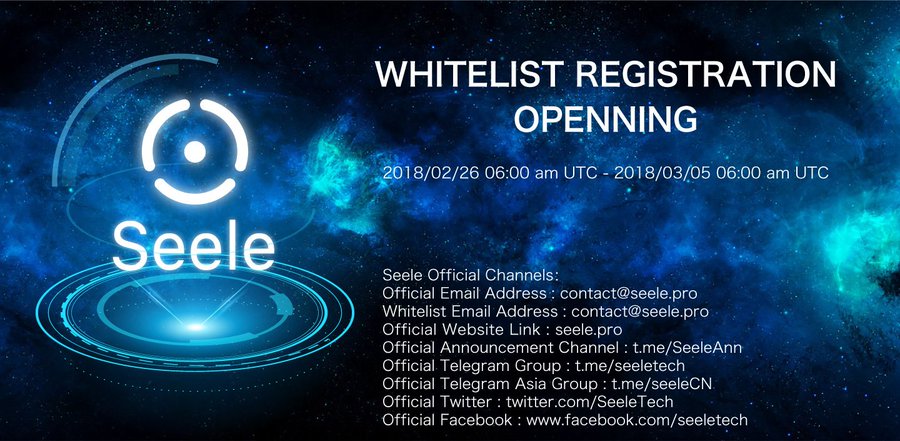Seele ICO - Analysis and Rating of Seele - ICO Market Data
Seelle

Empowered by an up-scalable Neural Consensus protocol
[Short general description]: Seele is powered by an up-scalable Neural Consensus protocol for high throughput concurrency among large scale heterogeneous nodes and is able to form a unique heterogeneous forest multi-chain ecosystem.
[Main problems tackled]: Some of the main problem addressed by the project are: inability to scale for large scale performance, the inability
to support diverse business scenarios and the inability to exchange information and share assets across different blockchain networks are becoming more prominent.
[Main contribution proposal]: In response to these problems, we try to make progress in different aspects of the blockchain, such as the core issues of the blockchain, underlying communication protocols, network infrastructure, cross-chain agreements, consensus algorithms and the upper application ecosystem, and strive to promote the development of the blockchain and value added Internet widely used.
Here are the main improvements proposed by the Seele protocol:
A novel neural consensus algorithm is proposed to improve the fault tolerance from 33% to 40% without any loss of performance compared with the Byzantine Agreement(BA) algorithm;
Proposed Heterogeneous Forest(HF)Network architecture with good scalability for a wide variety of application scenarios, as well as perfect mechanisms resource and security isolation for any generic or customizable demand;
Proposed Value Transport Protocol (VTP) and Value HTTP (VHTTP Protocol) to realize the naming, discovery and addressing service of Value Internet assets and entities, and seamlessly integrate and integrate with the Internet resources to build underlying protocols and infrastructure services for blockchain ecosystem;
Proposed TCP/UDP-based low-latency Quick Value Internet Connection(QVIC) protocol that can better adapt to and meet the requirements of blockchain network than traditional Internet TCP and UDP protocols used in current blockchain networks.
There are several obvious advantages in handling more connections, security, and low latency, especially in the transmission of packets of a specific block size (1M, 2M). Compared with UDP, the transmission efficiency is improved nearly 1 order of magnitude.
Evidently, Seele’s proposal is outstanding and impressive. Such conclusions do not come easily and are the result of strong research scientists which are well supported from a developer standing point. After further evaluation we can conclude that the team is first-rate thanks to their extensive experience and relevant PhD experience. In terms of partnerships they include: IBM, Oxford, UCLA. A test network is scheduled for 2018 Q2 and main for Q4.